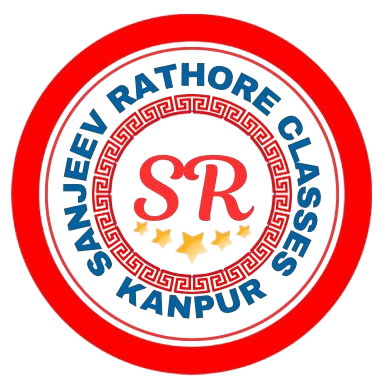The IIT JEE (Indian Institute of Technology Joint Entrance Examination) is one of the most challenging exams in India. Every year, thousands of students compete for a limited number of seats in the prestigious IITs. Success in IIT JEE requires strategic planning, dedication, and expert guidance. Among the many coaching experts, Dr. Sanjeev Rathore stands out as a mentor who has helped countless students achieve their IIT dreams.
Understanding the IIT JEE Exam Pattern
The IIT JEE exam consists of two stages:
- JEE Main: The first stage, which serves as a qualifying exam for JEE Advanced.
- JEE Advanced: The final hurdle for securing admission into IITs.
Both exams assess a student’s proficiency in Physics, Chemistry, and Mathematics through complex problem-solving and analytical thinking.
Why Choose Dr. Sanjeev Rathore for IIT JEE Preparation?
Dr. Sanjeev Rathore is a renowned educator in the field of IIT JEE coaching. His teaching methodology is structured to ensure that students not only understand concepts but also apply them effectively in real exam scenarios. Here’s why he is the best teacher for IIT JEE preparation:
- Proven Track Record: His students consistently secure top ranks in IIT JEE.
- Concept-Based Learning: He focuses on building strong fundamentals rather than rote memorization.
- Customized Study Plans: Every student gets a personalized preparation strategy based on their strengths and weaknesses.
- Regular Test Series: Periodic mock tests help students identify their weak areas and improve accordingly.
- Advanced Problem-Solving Techniques: Unique shortcuts and tricks to solve problems efficiently.
Step-by-Step Guide to IIT JEE Preparation
1. Build a Strong Foundation
- Start with NCERT books as they form the base for JEE Main and Advanced.
- Strengthen your understanding of Physics, Chemistry, and Mathematics with in-depth conceptual clarity.
- Make use of reference books like H.C. Verma for Physics, O.P. Tandon for Chemistry, and R.D. Sharma for Mathematics.
2. Follow a Well-Structured Study Plan
- Dedicate at least 6–8 hours daily to study.
- Divide your time efficiently among the three subjects to avoid overburdening yourself with one.
- Set daily, weekly, and monthly goals to track progress effectively.
3. Master Problem-Solving Techniques
- Practice solving previous years’ question papers to get a feel of the exam pattern.
- Take mock tests regularly to enhance speed and accuracy.
- Develop a habit of timed problem-solving to improve efficiency in the exam.
4. Focus on High-Weightage Topics
Physics:
- Mechanics (Newton’s Laws, Work, Power & Energy)
- Electricity & Magnetism
- Optics
- Thermodynamics
- Modern Physics
Chemistry:
- Physical Chemistry (Mole Concept, Thermodynamics, Chemical Kinetics)
- Organic Chemistry (Reaction Mechanisms, Hydrocarbons, Functional Groups)
- Inorganic Chemistry (Periodic Table Trends, Coordination Compounds, Chemical Bonding)
Mathematics:
- Algebra (Quadratic Equations, Matrices & Determinants)
- Calculus (Limits, Differentiation, Integration)
- Coordinate Geometry (Circles, Parabola, Ellipse, Hyperbola)
- Trigonometry & Vectors
5. Practice with Mock Tests & Sample Papers
- Solve at least one full-length test every week.
- Analyze your performance to identify and rectify mistakes.
- Work on time management skills to ensure you attempt all questions within the given time.
6. Learn Time Management Skills
- Prioritize important topics based on previous years’ trends.
- Develop a strategy to attempt easy questions first before moving to difficult ones.
- Keep track of time per question to avoid spending too much time on a single problem.
7. Maintain Consistency & Stay Motivated
- Revision is the key to success – revise important formulas and concepts regularly.
- Stay motivated by setting small achievable goals.
- Take short breaks to refresh your mind and avoid burnout.
8. Seek Expert Guidance
With years of experience, Dr. Sanjeev Rathore offers specialized coaching and personalized mentoring to help students reach their full potential. His structured learning approach ensures that no topic is left uncovered, making him the best teacher for IIT JEE aspirants.
Common Mistakes to Avoid in IIT JEE Preparation
- Ignoring Basics: Ensure that you have a strong foundation before moving to advanced concepts.
- Lack of Practice: Regular practice is essential to excel in IIT JEE.
- Over-Reliance on Coaching: Self-study is equally important.
- Ignoring Mock Tests: Taking frequent tests is necessary to assess performance.
- Skipping Revision: Regular revision ensures retention of concepts.
Final Thoughts
Cracking IIT JEE requires a strategic approach, dedication, and expert mentorship. By following the right study techniques and learning from an experienced teacher like Dr. Sanjeev Rathore, students can significantly increase their chances of securing a top rank. Remember, consistency and perseverance are the keys to success.
